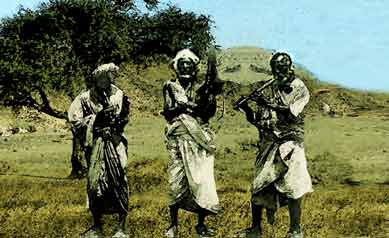The Song That Emancipates Eritrean Women

Traditionally; most of the Tigriniya love songs hanker on the themes of interference by others, on one lover’s succumbing to the village gossip, “my love, do not believe the gossip, it is motivated by jealousy “. And many are lamentations about parents who refused to bless the courtship because of lack of societal stature and prestige. Even the legendary Tekle Tesfazghi, who sang of free choice, who dared anyone to prevent him from the one he loves, “kemdlayey”, I am free! laces his song with a heavy dose of the conspiracies of others hell bent to spread their lies, of those who try to separate lovers, “we should not be apart, regardless of what people say….”
And some of the love songs, even by the likes of the great Tsehaytu Beraki do not make sense. In “Who started Love First”, Tsehaytu tells us that love started with Adam and Eve, when God created the world. For all we know, Adam and Eve’s was an arranged marriage. Adam could not find a wife from all the animals he named so God arranged Eve for him. Eve poisoned Adam with a tree of knowledge because of jealousy. Eve got jealous of the all knowing God.
Solomie Meharay in “Chocolate, Chocolate”, sings of her chocolate love, but we are in the dark whether she is referring to color or taste or both when she describes her love, who she wants to hide from the evil eyes of others as chocolate. Never mind that most Eritreans have never seen or tasted chocolate. She also asks him not to tell her his name because she wants to choose him one herself. If I was the journalist interviewing Solomie, I would ask her, if she was afraid of finding out that name of this handsome man would be “Tesfamraim, or Andetsion and that she intends to give him a sexy name befitting his looks; like Yoel or Henos? And before she answers, I would interrupt and say, by the way, “mama entay gerra timewut”?,
My throne, the beauty of my love
My Gift my shining star
Because you are my chosen one
I gave you my whole being
You are my limbs and sight
Your love is my command
Ask me to be like a horse
So we can gallop side by side to enjoy
I will be a boat the queen of the sea
Live by my side with pride
Ride my love’s tide
Fear not! Throw your anchor
And blaze your inner most feeling with me
You hold an honorable place in my heart
You own a scarce meadow in my heart
You are the custodian and grazer
Every word I utter refers to you
Day and Night
My feelings lecture on you
Before the snatchers and eagle predators
Since my heart has crowned you
I dare you to do the right thing
Enter Feven Tsegay!
Feven Tsegay turned gold in 2016. But I am not referring to her new hairdo, I am not alluding to her golden complexion, rather I am talking about her latest song, “Tsururay”, my medal of Honor. Both the lyrics and music were written by Tekle Fanus, AKA: Maereba. In it, Feven Tsegay, the singer who gave us the stinker, “Habiby Dewileley”, My love Please call me, now bestows upon us a delight. She sings of what she will do for the love of her life, encourages him to be bold, to have faith, “teaamen tirayyy”, not “nikid tray” like Solomie, and not to be tense, to throw his anchor and to stand still beside her. Like the ancient Greek rhetoricians who invented apt hand-gestures for every rhetorical device, Feven employs appropriate gestures and body languages for almost every crucial love scene in the song. She had a move when she was galloping like a horse alongside her love, she had an appropriate body language when she was daring him to take their romance to the next level. With eyes escorting her chest as she jostled it forward, she says: “… libey sheyimuka kollo etti zgiber hji gberro”: since my heart has crowned you, do what you get to do. In “My Love Please Call Me”, she got almost everything wrong; the linguistic was wrong, the semantics was wrong. And she got the facts wrong, when she said, romance is more pleasurable on the phone than in person. And in a duet she performed with Temesghen Yared, where he tells her that he is not the right one for her and dares her to divorce him, she begs him and reaffirms her commitment to her covenant and fidelity despite his imperfections. In “Tsururay”, she expressed her love. The lady is in charge. She is the author of the “by-laws” of their intimacy and romance, like a woman should be. She redeems herself by giving us a delight as a pay back of the two stinkers.
In “Tsururay”, the word “Zerraay” has a whole new meaning.
In the highlands of Eritrea, “Zerraay” is a menial job, usually held by drifters and refugees and they are abused lots, considered unsophisticated and shabby. Feven’s “zerraay” is both the protector of her dry season meadow and also the grazer in it, and he is also the crown king of her heart. Her “Zeraay” just needs to have faith, be confident, throw his anchor, surf on the waves of her love as it surges. A fool will decline this job description even if it is called “Zerraay”.
My only beef is that lyrics and song would have been perfect, if it avoided the cliché of “shilla allo qolliba allo”, I presume it was chosen for its catchy and memorable Asmarino appeal, but a cliché always degrades an art. The memorable line in this piece of art is, “…. ab libey zelo hzzaati haggay, nssikha zerraay, baal’khaa seaaray”. Pure unadulterated gold!
Almost all the girls named Feven are my age group and younger, but I could not find the meaning of Feven, maybe it is a corruption of heaven, but now that Feven Tsegay graced us with a song that I think will be a classic, contributing to the emancipation of Eritrean woman, I suggest that she changes her name. I recommend the name “Wolete-Harent”
Way to go Maereba! Weldone Wolete-Harnet! Few more of this, please
An other Tigrinya singer, an Ethiopian, Eden Ghebressilasie, in the song “Swanwano”, sings of her love: he is an eloquent shepherded, who she spotted when he was herding animals from distance, her heart skipped when she approached him. His conversation is deliciously flavoured and she cannot have enough of him. With unbridled confidence she brags that she is a material for “hemma” (the first spouse), and with assured self, she tells him that she is a magnet to the eyes of men and shares her dreams of him becoming the love of her life. And above all, she confides on him that she is not beholden to the traditional ornaments that dangle from the ears and neck, that she is satisfied by his love, “aydelin eye kutisha gobagub ab ezney zlegib, baakka eye zaggib”
Just like Feven’s “Zerraay” has been elevated, his rights have been protected to enjoy the fruits of his toils, like her surging love, the women of Eritrea and Ethiopia are rising and they will own the rest of the century, to assume the pinnacle, to write their own history, to annul those written by the self serving men. I hear it in the voices of Feven and Eden, I witness it in the tenacity of the survivors of PFDJ, I read it in an awate article, “The Secret of The Night”




Awate Forum